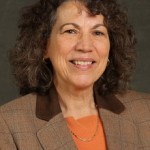The School of Health Sciences and Human Performance officially launched its public and community health degree program last Friday, replacing three other programs in the department of health promotion and physical education.
The new major program replaces the health promotion concentration of the health sciences program, the health policy studies program and the community health education program.

The bachelor of science degree program, which unofficially commenced in Fall 2011, is designed to prepare students to use scientific methodology, policy planning, program planning and education to make changes in systems that affect people’s health.
Speaking at the launch of the major on Friday, Linda Petrosino, dean of HSHP, said the new program integrates a range of disciplines, corresponding with the Integrative Core Curriculum initiative of Ithaca College’s IC 20/20 strategic plan.
“Public health requires a grounding in the basic sciences, the physical sciences, quantitative sciences, the human behavioral sciences, the social sciences,” she said. “You have to have a grounding in all of that to be able to come to the table to solve the complex issues of public health.”
Stewart Auyash, associate professor and chair of the department of health promotion and physical education, said the number of students in the other three programs was low, and as a result, the classes in the program were too small.
There are currently 32 students in the public and community health major, which is second only to the department’s health sciences pre-med major, which is made up of 67 students.
Required courses for the new major include Introduction to Health Promotion, Fundamentals of Biology, a psychology elective, a multicultural elective, a mathematics elective and six internship credits.
Public and community health majors are also required to choose from two possible emphases: the program emphasis and the policy emphasis. Alternatively, students are given the option of picking their own combination of 24 credits, which is then approved by faculty.
Most of the courses required for the program already existed, though Auyash said some of them had to be slightly altered to fit the requirements of the new degree program.
Auyash said in the future, they hope to collaborate with different departments of the college, including members of the politics department and the environmental studies and sciences department.
Karen Edwards, associate professor in the department of health promotion and physical education, researched the program before it was submitted for approval.
Edwards said the decision to replace the three former programs with the public and community health program was also based on the fact that many faculty in the department had expertise in public health.
Furthermore, she said recommendations from the Association of American Colleges and Universities were also a part of the reason behind the creation of the new program.
“[The AAC&U] said that public health was a good way to teach students how to think integratively and across disciplines,” she said. “So we were at the forefront in implementing those ideas so that the students who emerge have this analytical ability; they can question, they can use evidence, they solve larger problems.”
Junior Donette Ritchie was a biochemistry major before she transferred into the public and community health major program last year. She said she preferred it over studying to become a doctor because the new program would help her make a bigger change in the healthcare system.
“I realized that it is not so much a medical degree that I need but more so a policy degree, because policies put out programs and documents that can make a wide and a broader change and have more of an effect,” she said.
Senior Alexis Singh, who also transferred into the program when her previous major was replaced, said though the program initially caused some confusion regarding her prerequisites, it will help her achieve her ultimate goal.
“In the long run, I hope to go to third world countries and create programs to help young girls with sexual reproductive health,” she said. “So this [program] is perfect.”







